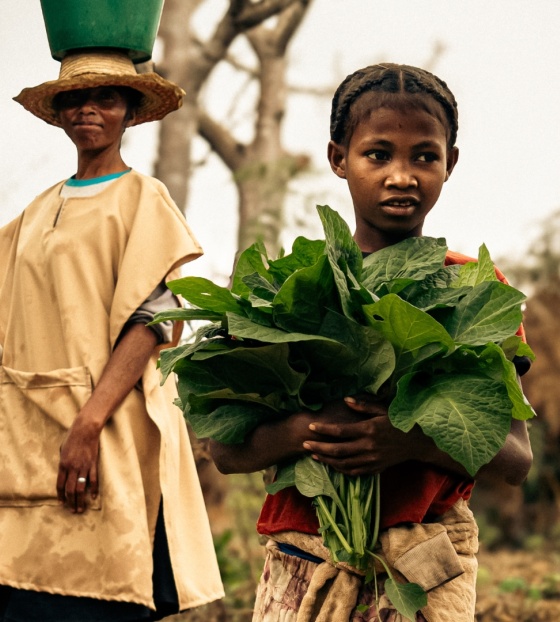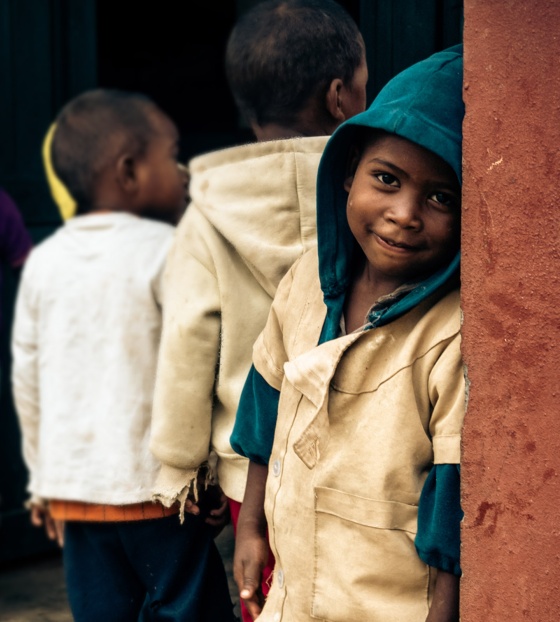

Protecting the Environment, One Meal at a Time in Madagascar
Mary’s Meals is fuelling the next generation in Madagascar to learn about the importance of conservation
In Madagascar, Mary’s Meals feeds more than 88,500 children every school day, giving them the energy to learn so they can gain an education. And, at the schools where they eat Mary’s Meals, they are also learning about the importance of sustainability and protecting the beautiful environment that is their home.
We are celebrating our programme in Madagascar, and the people in the communities we serve there who are helping the next generation learn about the importance of conservation.
The school garden
One such person is Gervais, who works at Taratra Primary School. School technician Gervais is acutely aware of climate change, which has caused problems across Madagascar in food supply during fallow periods. Droughts, cyclones, and erratic rainfall regularly devastating crops in the country.
He runs a small agroecology programme at the school, which enables the pupils to run a school garden. The pupils plant and grow produce in the garden that is the used to supplement their daily school meals. By taking part in the garden project, they learn about the importance of sustainability and looking after their environment.
Gervais says: “It is really important to teach pupils the preservation of the environment. Children are like one tree which grows in one area: the air and the environment around them keep them standing. If the wind from one side blows strongly, the tree will fall down, but if the wind from all sides blows the tree will stand steadily and can provide fruits.
“It’s the same thing for the pupils. Our environment continues to deteriorate, [but] the children are the future generation. It's us who will shape them to have the mindset of preserving the environment. If we could shape these children, the destruction of the environment will be reduced in the future for this generation.”
Nothing goes to waste
Another enterprising member of her community in Madagascar is Ginette, headteacher of Antifotenina Primary School. According to Ginette, “nothing from the [Mary’s Meals school feeding] programme is thrown away.” Nothing goes to waste – everything used in the process of cooking and serving Mary’s Meals at the school is put to good use after its initial purpose.
She explains: “Here, we do not throw away the cooking oil bottles from the school feeding. We re-use them to plant vegetables such as green leaves, salad and onions. Even the bags of onions, we fill them with fertilizers and plant things in it.
With their ingenuity, the team at Antifotenina Primary School is giving a second life to used supplies, growing food and creating new classroom supplies to help the children to learn.
Conserving the rainforest
Jean Delphin is vice-headteacher at Ankarinomby School, where the children eat Mary’s Meals every school day. Here, the pupils are taught about conservation, agriculture and the importance of the Madagascan rainforest. By teaching the children about the rainforest and showing how protecting it can lead to the fulfilment of crops, attitudes are changing for the better throughout the community.
Jean Delphin says: “We educate the children, since childhood, to love preserving nature, because if the forest is not preserved, the soil will lose its fertility, [and] so we will not produce crops. Thanks to the existence of the forest, there is a clean air and good health. The condition is good, productivity is increasing, [families are] reassured that they can avoid hunger.”
Our school feeding programme in Madagascar shows the impact of Mary’s Meals stretches far beyond meeting a hungry child’s immediate need for food. A daily school meal attracts these children into the classroom where, as well as reading, writing and arithmetic, they are learning about the value and importance of their environment in producing food – leading to a true cycle of hope for them and their communities.
It costs just £19.15 to feed a child with Mary’s Meals for a whole school year, which is just 10p a meal. Please give today if you can, to feed the next generation while they continue to learn about the importance of protecting our planet.
